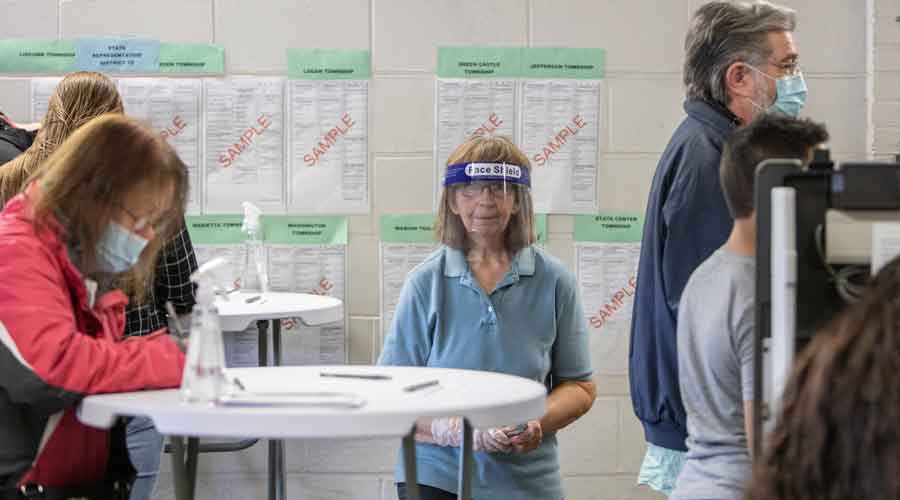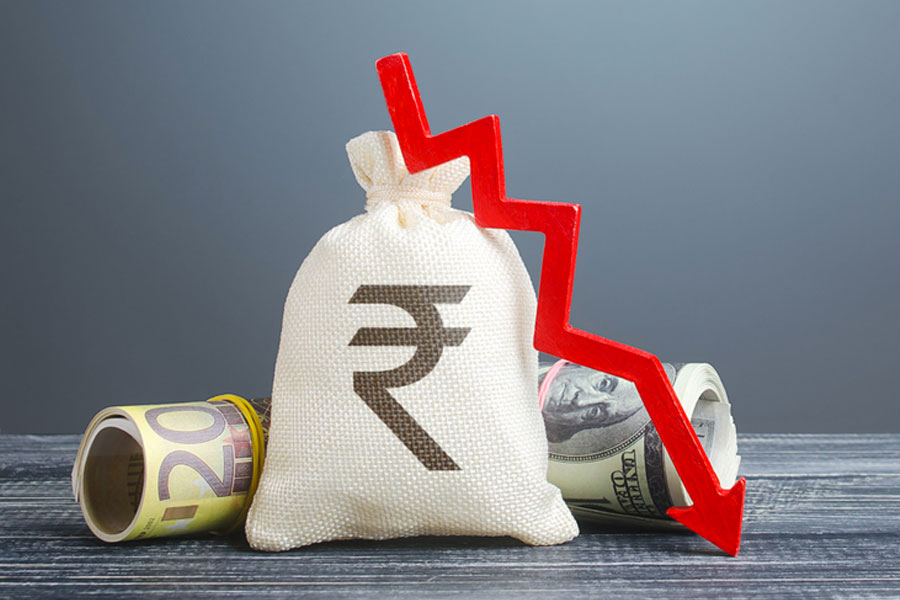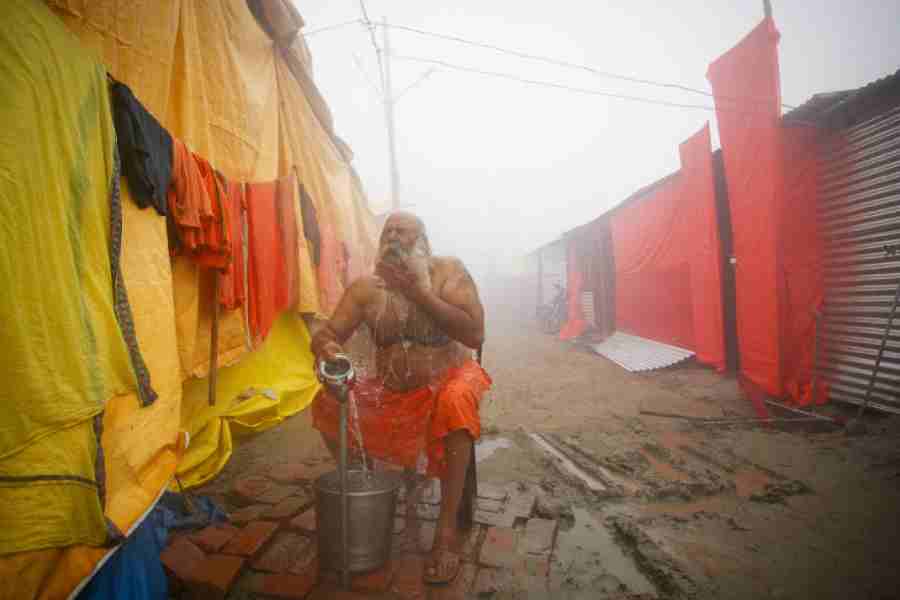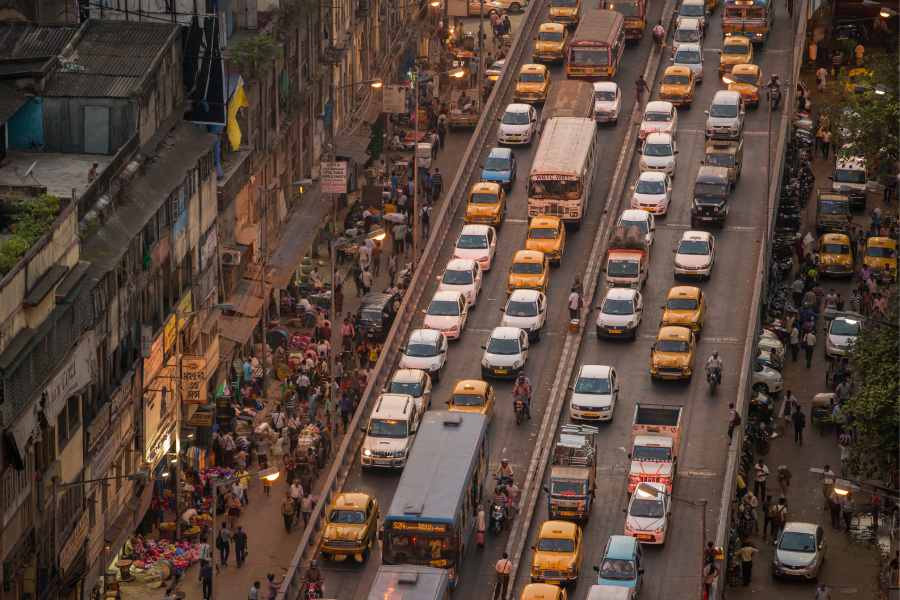A nation with nearly 8 per cent unemployment and mourning more than 231,000 Covid deaths, where four out of five Americans say they feel nervous about the country’s future, gets a final chance on Tuesday to decide which candidate is best equipped to lead it past those daunting numbers.
The division and anxiety are evident in conversations among voters in long lines outside early voting places and across browning autumn lawns where warring yard signs pit neighbour against neighbour. Here in the middle of the country, where case counts are surging and college games were postponed after much angst this past weekend, the worry is all connected, from people on either side of the political chasm.
The coronavirus trends are especially pronounced in several battleground states, including Wisconsin and Michigan, which Joseph R. Biden Jr. is fighting to win back for the Democrats after President Trump’s victories there in 2016, and where infection rates were ticking up as the calendar wound down.
A fundamental unease about the country hovers over most other concerns voters describe as they cast ballots: The future of America troubles them more than whether they may lose a job in this recession, whether they could become ill in this pandemic, whether they could personally be harmed by violent crime.
In national polling by The New York Times and Siena College, voters across the political spectrum say they worry that the next generation of Americans will be worse off. And they are concerned America could lose its democracy.
That sentiment means different things to voters on the Left and the Right. Republicans describe fears of creeping socialism from within the Democratic Party and deep changes in American values amid protests against the police and historical figures. Democrats fear threats to democracy from within the White House itself, as they describe Trump undermining the country’s institutions and rule of law.
Other opinion polling leading up to the election has shown Americans deeply divided not just on which candidate they support in the election, but also on questions that have become inseparable from partisan politics this year.
Democrats believe the worst of the coronavirus pandemic is yet to come; Republicans believe the worst is already behind the country.
Democrats, by broad margins, approve of the Black Lives Matter movement; Republicans, to a comparable degree, have denounced it.
Voters in the two parties disagree on the outlook for the economy, the importance of wearing masks and even whether schools should reopen in person.
They even see different realities in their personal lives: Just one in five Democrats said they were personally better off than four years ago, in a recent Times/Siena national poll. Nearly nine in ten Republicans said they were better off at the end of the first Trump administration.
There had been 79 months of uninterrupted private-sector job gains, the unemployment rate was running below 5 per cent for the first time since the start of the Great Recession, wages were growing and there were high levels of consumer confidence.
Today, the economic picture looks very different. The official unemployment rate in September was 7.9 per cent, and more than 12.6 million people are unemployed — five million more than when Trump took office.
There has been progress since the spring, when the spreading pandemic shut down the economy and virtually halted commerce. But the improvements, fuelled in part by $2.2 trillion in government assistance to individuals and businesses, are fading. Hundreds of thousands of new jobless claims are reported every week at levels that still eclipse previous records.
Several major companies have said they expect another wave of layoffs and furloughs. Wall Street analysts warn that growth is likely to continue to slow, leaving the economy about 2.5 per cent smaller than it was last year.
In several battleground states, including Pennsylvania (8.1 per cent), Texas (8.3 per cent), Ohio (8.4 per cent), Michigan (8.5 per cent) and Nevada (12.6 per cent), the jobless rate is higher than the national average.
Others are faring better, with Wisconsin at 5.4 per cent, Georgia at 6.4 per cent and North Carolina at 7.3 per cent. All, though, are in much worse shape than they were a year ago.
Through most of the Trump administration, views of the economy closely tracked political preferences. Republicans could be counted on to have optimistic views about the economy and give President Trump the credit, while Democrats had a much more negative outlook on the country’s prospects and Trump’s effect on them.
“People’s views of the economy are always coloured by party identification,” said Lynn Vavreck, a political scientist at the University of California, Los Angeles.
Republicans remain more positive than Democrats, but overall confidence in the economy is low, and only 28 per cent of those surveyed approved of the way things were going in the US. Vavreck said that in this unusual year, handling of the economy and handling of the pandemic were joined together in a way that is difficult to peel apart.
Additional reporting by Mitch Smith and Patricia Cohen
New York Times News Service











